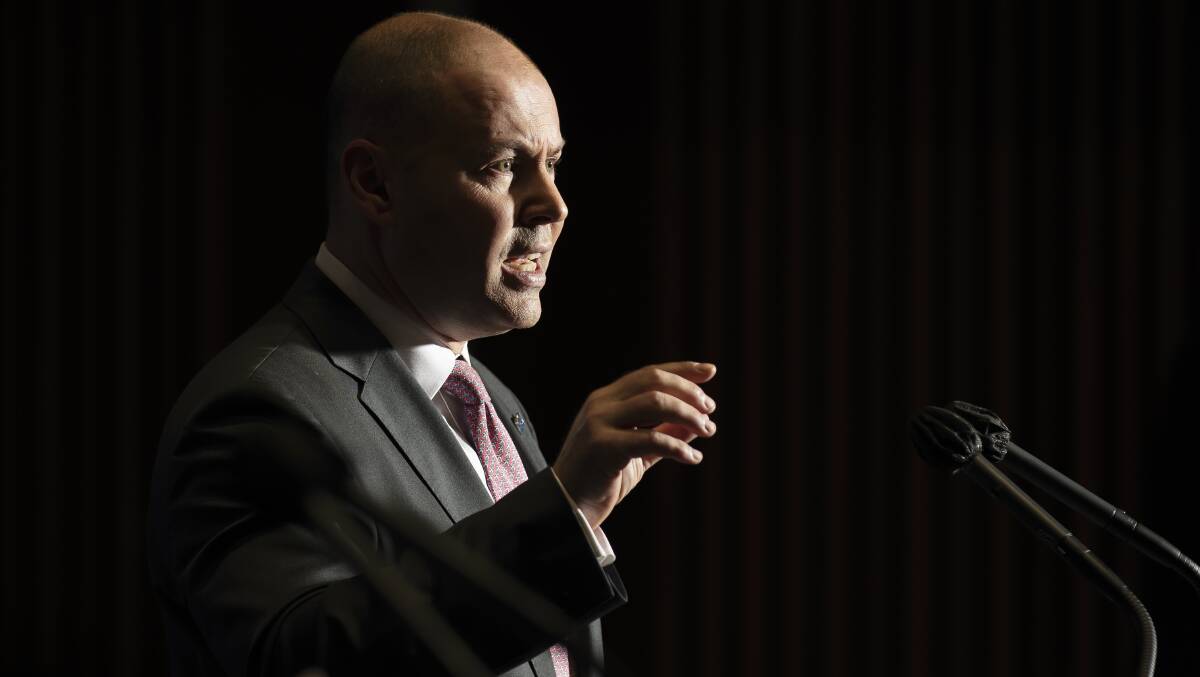
A report into retirement income and superannuation has been released, causing the federal government to reconsider whether it will allow a scheduled increase of superannuation to go ahead in 2021.
Subscribe now for unlimited access.
$0/
(min cost $0)
or signup to continue reading
The Retirement Income Review, a 648-page report into the aged pension, retirement income and superannuation system, was publicly released on Friday morning and will inform the government on how it deals with policy in the coming years.
While the report found no major changes were needed to the system, it offers a number of recommendations, which could see potential shakeups.
How does superannuation work now?
The superannuation scheme, first introduced in 1992 under the Keating Labor government, is a compulsory payment made by employers to a fund inaccessible to workers until they reach retirement age.
The government sets the rate as a percentage of total pay. That rate now sits at 9.5 per cent after it rose from 9.25 per cent in July 2013.
What does the retirement income report say?
The Retirement Income Review has determined the country's retirement income system is "effective, sound" and "broadly sustainable" but cautioned Australian incomes would be better off in the long run by 2 per cent if the superannuation guarantee level remained at 9.5 per cent.
"The weight of evidence suggests the majority of increases in the superannuation guarantee come at the expense of growth in take-home wages," the report said.
"If the superannuation guarantee stayed at 9.5 per cent rather than increasing to 12 per cent, they would also have higher incomes during their working life."
It suggested greater education was needed for Australians in order to increase their super balances without having to resort to larger personal or employer contributions.
"The focus of superannuation has often been on building larger superannuation balances through increased contributions. But lower fees and higher investment returns will increase superannuation balances," the report said.
"Crucially, there has been insufficient attention on assisting people to optimise their retirement income through the efficient use of their savings."
Outside of superannuation discussion, the report also said the aged pension, when combined with other support, was "effective" in helping older Australians achieve a minimum standard of living in retirement.
It added, however, that not all retirees were meeting that standard. Some living in private rental properties would need additional support, the report recommended, but that increasing rent assistance wouldn't be enough.
The core of all the problems, the report said, was a poor understanding of the complex retirement income system. Until that improved, people would not be able to make informed decisions about their future.
"Complexity, misconceptions and low financial literacy have resulted in people not adequately planning for their retirement or making the most of their assets when in retirement," the report read.
"Adding to complexity is the interaction with other systems, such as the aged care and the tax systems.
"People need better information, guidance and good, affordable advice tailored to their needs."
So, will my superannuation guarantee increase next year or not?
It's the question we all want to know but it's unlikely we'll find out until next year.
Mr Frydenberg said the report will be considered, among a range of other views, before making the big decision to pause the legislated superannuation increase to 10 per cent due next year.
"We will consider ... this report, will consider other views that have been placed out there and we will make a decision about that in light of current circumstances before the scheduled increase takes place," Mr Frydenberg said in a press conference on Friday morning.
"The key point also to underline here is that we are living in a very different economic environment than we were this time last year. We have been subject, as a nation and a global economy, to a once in a century economic shock with COVID-19."
Opposition leader Anthony Albanese said the government's comments suggested it was "laying the groundwork" to remove the scheduled increase despite previously promising not to.
"Universal superannuation ... is such an important reform, providing for retirement incomes for Australians, as we have an ageing of the population. And [the government looks] for any excuse to break the promises as they have done in each of the previous two terms of this Coalition government," Mr Albanese said.
"The fact is, we have a legislated increase for universal superannuation to 12 per cent. The Coalition committed to not change that. But once again, they're laying the groundwork for another backflip."
What's also not yet known is what will happen to the remaining scheduled increases, which would see the superannuation guarantee rise to 12 per cent by July 2025.
Mr Albanese added the data didn't add up when it came to the correlation between slow wage growth and increasing the superannuation guarantee.
"We've never seen a prolonged period like this whereby wages simply haven't been rising. And that's been at a time where they've frozen the superannuation increase, not once, but twice already," Mr Albanese said.
"So, the evidence is very clear that freezing the superannuation increase certainly hasn't led to increased wages. If it did, we would have that evidence already."


